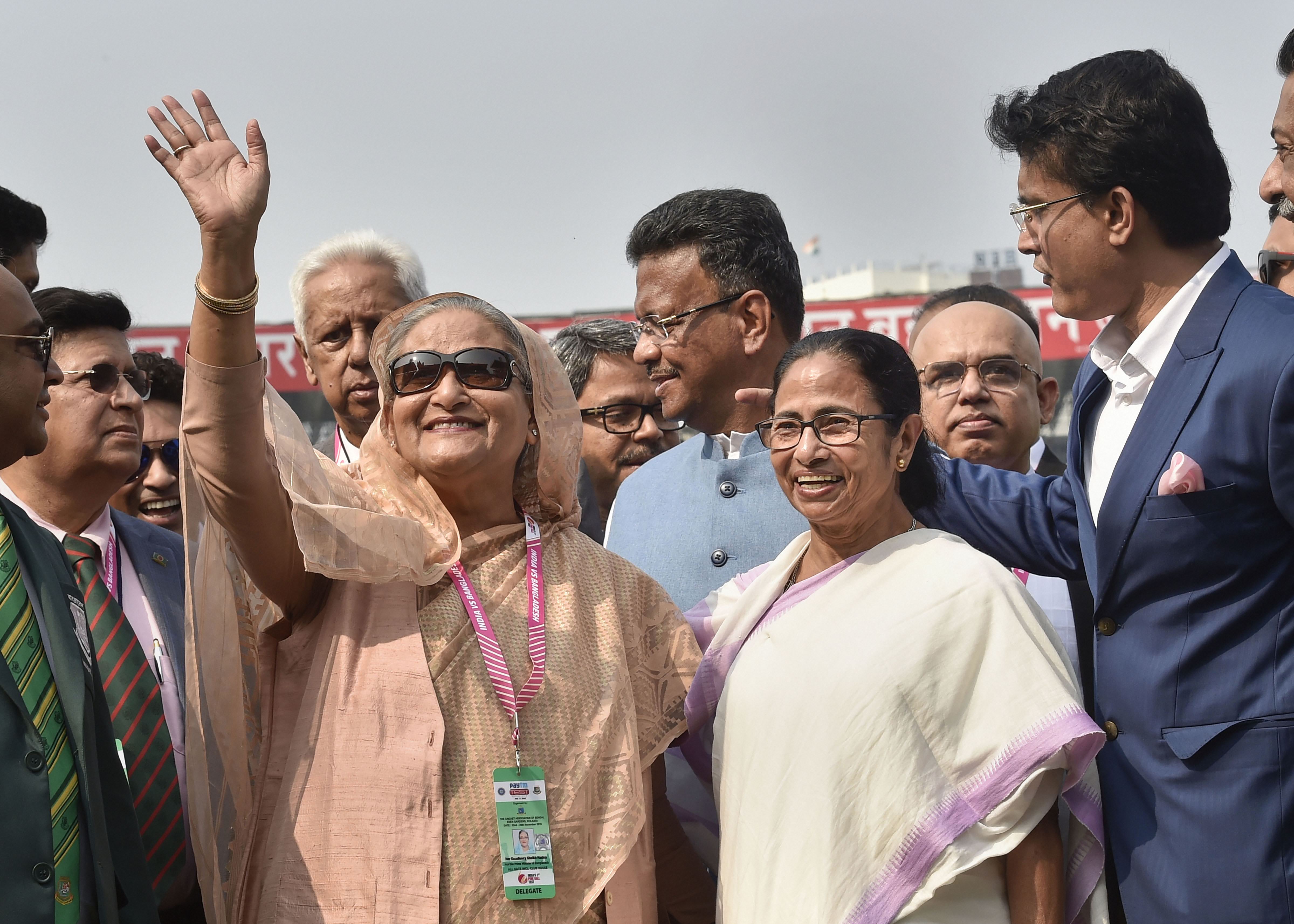
Bengali confrontationist persona and contemporary realities
On May 12, Bangladesh's foreign minister AK Abdul Momen reminded China that Bangladesh was 'an independent and sovereign state'. "We decide our (own) foreign policy," Momen said after China publicly asked Bangladesh not to join the US-led Quad alliance and insisted that Dhaka's presence in the anti-Beijing “club” would “substantially damage” bilateral relations.

On May 12, Bangladesh’s foreign minister A.K. Abdul Momen reminded China that Bangladesh was ‘an independent and sovereign state’. “We decide our (own) foreign policy,” Momen said after China publicly asked Bangladesh not to join the US-led Quad alliance and insisted that Dhaka’s presence in the “anti-Beijing club would substantially damage” bilateral relations.
The surprise warning from the Chinese ambassador in Dhaka followed Defence Minister Gen. Wei Fenghe’s visit to Bangladesh, during which he insisted Beijing and Dhaka should work jointly against “outside powers” establishing a “military alliance” in South Asia and practising “hegemonism.”
Momen’s polite but spirited talkback to mighty China came within a few weeks of his snubbing of India’s heavyweight Home Minister Amit Shah for berating Bangladesh as the country that sends “hungry masses into India.”
Momen termed Shah’s poll campaign comments on his country as “sad and unacceptable” and sarcastically described Shah as “a wise man” but reminded the Indian politician that “not all have the wisdom of all affairs.”
Momen was nursing a grouse over Shah’s description of Bangladeshis as “termites”, so he shot back at Amit Shah for “possibly thinking Bangladesh is still in the 1970s, which is very sad.”
“In the last two decades, Bangladesh has made enormous socio-economic progress, including rural infrastructure, agricultural development, women education, reduction in child and maternal mortality and overall poverty reduction,” Momen told journalists in Dhaka.
Momen reminded Shah that Bangladesh, once described by Kissinger as a “bottomless basket”, had now crossed India in annual per capita income and per capita GDP growth.
Then, in a strong display of Bengali solidarity, Momen congratulated Mamata Banerjee, on behalf of his Prime Minister Sheikh Hasina, for “spiritedly upholding the long-cherished values of Bengal — the principle of religious harmony and brotherhood that Bangabandhu (Mujibur Rahman) upheld throughout his life.”
Also read: Bengal considers vetiver grass as long-term solution to cyclone flooding
Mamata Banerjee has repeatedly invoked Bengal’s secular tradition and a cultural identity above religion to fight what she described as BJP’s “divisive communal Hindu-Muslim binary”, evoking huge admiration across the border in Bangladesh, where the eight-phase bitterly contested West Bengal polls (27 March-29 April) was closely watched.
“Mamata Banerjee’s victory is a victory for Bengali values and we all cherish it,” wrote Awami Mohila League leader Shahanaz Parvin Dolly on her Facebook page, drawing thousands of likes and supporting comments in both Bangladesh and West Bengal.
Momen’s congratulatory message talked of “shared history, culture, language, values, and ancestral linkages between people on both sides of the border that have made relations stronger and unique.” “West Bengal and its people have a special place in the hearts of Bangladeshis,” he further said.
Mamata Banerjee’s poll victory against the formidable BJP election machinery and the saffron brigade’s accusations against her for alleged ‘Muslim appeasement has made her a hero of sorts in Bangladesh, despite her decade-old opposition to the Teesta water-sharing accord.
Mamata’s standing up to BJP post-poll machinations, from the arrest of four TMC leaders to the confrontation over Alapan Bandopadhyay’s deputation, has reinforced Banerjee’s credentials in the ‘Other Bengal’. Her raising the ‘Joi Bangla’ slogan, the war cry of the 1971 Bangladesh liberation war, to fight the ‘battle of Bengal’ has created an emotional bond in the politics of resistance that Bengalis have revelled in since they first opposed the British proposed 1905 partition.
In social media, the Bangladeshi response to suggestions of a future ‘Bengali PM’ in India is reminiscent of the enthusiasm in that country over Jyoti Basu’s possible chance to become India’s PM that was ruined by the CPI(M) Politburo.
But this Bengali bonhomie is not mere emotions often reflected in contemporary literature and music of a divided but deeply attached people, in poetic expressions like “Bhasay Ek, Bhalobashay Ek” (United in Love by Language) and in trans-border love sagas (from Feroza Begum-Kamal Dasgupta to Srijit Mukherjee-Rashed Rafiath Mithila).
A strong case for economic reintegration emerges from a recent World Bank report “Connecting to Thrive” which says with seamless transport connectivity, India and Bangladesh can add up to 8 to 10 per cent to their national incomes and between 180 to 300 per cent to their exports.
The connectivity invariably happens through West Bengal and Tripura and its benefits would primarily rub on to these two states on the Indian side. A rising Bangladesh offers a bigger spillover benefit waiting to be leveraged in West Bengal and Tripura than far-off Gujarat or Maharashtra ever would. Mamata, in her third term, should synergise her industrialisation drive with Bangladesh which is seeking to diversify its industrial base and export basket.
Bangladesh and West Bengal would thus have to look beyond immediate confrontationist emotionalism which shapes the Bengali persona and look to recreate a relationship based on mutual opportunities and tackling of common problems, like saving the Sundarbans.
Bengali is the seventh-largest linguistic group in the world but their tragedy is the last century – and this one- is that they failed to translate this into political power.
But their future prosperity lies in economic and cultural reintegration, in keeping at bay the virus of religious extremism, in further promotion of its unique gender power and carrying forward the social modernisation initiated by the leading lights of Bengal’s 19th-century renaissance.
Hasina’s development success and Mamata’s electoral success, a victory for Bengali gender power, can craft together a unique bottoms-up, distributive, justice-driven economic and human development model that can anchor South Asia’s political economy in the decades to come.


